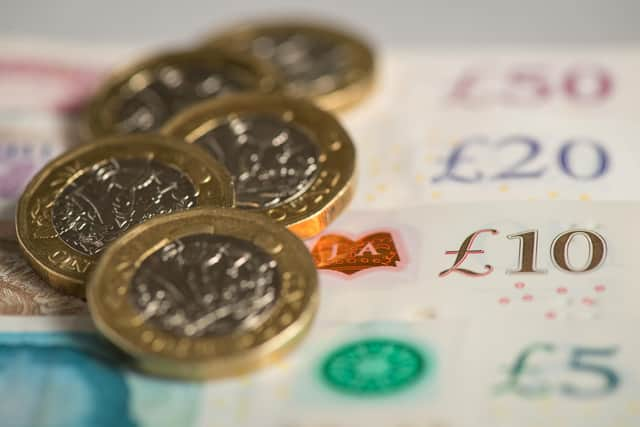There can be no soft landing and no pain free outcome
and live on Freeview channel 276
I remember, when studying economics, writing essays about the impact of inflation and, even worse, stagflation when an economic recession and inflation combine to really put an economy into a tailspin. That is the situation we are facing into and regardless of who wins the battle to become the next prime minister there will not be a lot they can do about this. Latest forecasts are that far from peaking this year at around 10 per cent, it could be well into 2023 before inflation finally peaks at a rate as high as 18 per cent.
By any standards that is a grim prospect. It will destroy consumer confidence and will bring hard times for the retail sector, on which the UK economy, in contrast to others in Europe, is over-dependent. This makes it all the more bizarre that the front-runner to become prime minister, Liz Truss, is committing herself to tax cuts. With the economy facing a year of recession and inflation, even without tax cuts revenues will fall because of lack of business profitability – just when demands on public spending from the cost of living crisis rise. That is an equation that does not balance and cannot balance, but she alone seems incapable of seeing that reality. It is ironic that with the UK less exposed to the loss of Russian gas than the EU it is facing the biggest inflation burden – but that could change very quickly as the fallout from that dependence on Russia affects the EU.
Advertisement
Advertisement
It is clear which sectors are most exposed to inflation conditions that are set to get a lot worse. The retail sector will find consumers are nervous about spending and even more nervous about taking on debt when interest rates are on the rise. That points to a difficult autumn ahead for retailers that can only makes the exodus from the High Street to online shopping an even more stark trend.


But even the mighty Amazon could find consumer spending falls as belts are tightened, as will the hospitality sector, the motor trade and many other parts of the economy. Inflation is going to hurt every business in the UK. There can be no soft landing and no pain free outcome.
The question is how it will impact agriculture and whether it is likely to fare better than other businesses. The answer to that question is probably better. Agriculture should ride out a period of hyper-inflation better than other sectors. As an industry it has traditionally neither soared or plunged with the rest of the economy, producing as it does a product people cannot do without.
In economic terms the demand for food is inelastic.
If prices rise, people still have to buy and if they fall people do not eat more food.
Advertisement
Advertisement
They may change the mix of between higher and lower value products, but they still eat. Through history agricultural land has been less volatile and a better defence against inflation than other assets, such as commercial property.
Farming does not enjoy the spectacular peaks, but it has the comfort of steady growth and avoiding the troughs. Into that mix can be added the fact that labour levels are low on most farms, with family labour the key ingredient. This gives farms a defence against the wage inflation now a major problem for other businesses.
The thing that upsets this theory is that inflation is now energy cost driven. Most farm businesses are modest rather than huge users of energy compared to manufacturing businesses, but they are exposed to energy markets when it comes to the cost of inputs.
Another spike in fertiliser prices by next Spring is inevitable. It will not be popular, but agriculture will have to continue adding to add to inflation by passing on higher costs to retailers and consumers.
Advertisement
Advertisement
It can do so, because of that inelastic demand for food, but it will be criticised and we are already hearing calls for a new windfall tax on grain companies. There is no escape from the damage of inflation – it really is the thief of prosperity – but history suggests agriculture will withstand the pressure and the need to trim costs better than other sectors of the economy.